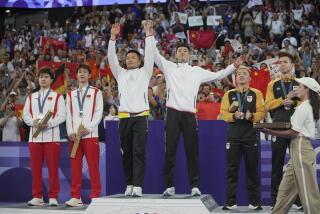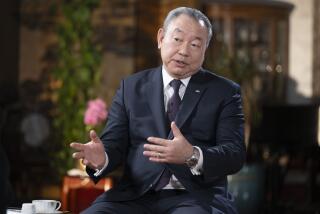Cooler Winds Over the Taiwan Strait
- Share via
Conciliatory post-election gestures from both sides of the Taiwan Strait indicate, after weeks of rising political antipathy, that Beijing and Taipei may be ready to talk. Each appears to be waiting for the other to make the official overture, but they seem willing to put their war of nerves behind them--at least for now--and to search for some mutually beneficial arrangements.
What a difference an election day makes. Taiwan’s voters were undaunted by Beijing’s war games and other acts of intimidation. On Saturday they went to the polls, overwhelmingly keeping Lee Teng-hui in the presidency in Taiwan’s first direct election. Lee received 54% of the vote to the 21% of a pro-independence candidate.
Beijing called Lee’s victory “the new way the Taiwanese people choose their leaders,” and said that China’s diplomatic door is open. That acknowledgment, though tepid, is nonetheless something, considering that Beijing has spent months vilifying Lee for his openly internationalist stance when, in fact, he has said he favors reunification once China reaches what he considers the state of development in Taiwan.
Could there be a meeting of high-level officials? It would set a precedent in nearly 50 years of separation. The two sides have communicated, mostly through nongovernmental groups, on trade and technical issues. But even those talks--about establishing direct air, shipping and communications links between the two capitals--were suspended last June when China went ballistic over Lee’s U.S. trip, in which he visited Cornell University as a private citizen. The talks should be resumed.
At this point, there is little indication of substantive change in relations except the cessation of China’s war games, which brought U.S. carrier groups into the area and led to a tense election campaign on Taiwan. But the post-election niceties mark a welcome change anyway. Lee, while exuberant in victory, is playing it low key for the moment. He stood up to Beijing’s saber rattling and says now that he will make no major addresses until his inauguration in May.
During this cooling-off period, Washington should play a constructive role in encouraging China and Taiwan to work out their differences. They both have a great deal to gain by working together in the region.
More to Read
Sign up for Essential California
The most important California stories and recommendations in your inbox every morning.
You may occasionally receive promotional content from the Los Angeles Times.













